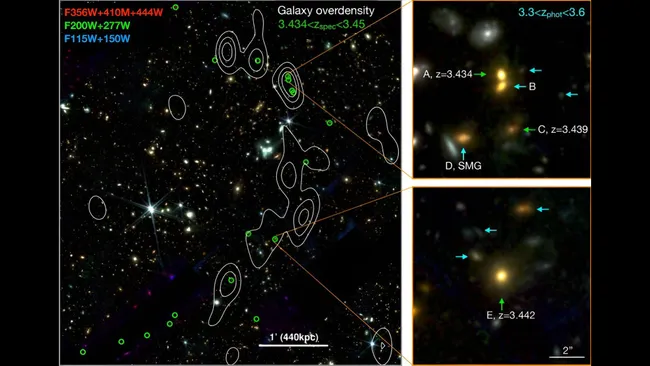Astronomers using James Webb Space Telescope (JWST) data have discovered a massive chain of at least 20 closely packed galaxies from the early universe, and it could reveal insight into how the most massive structures in the cosmos form.
This megastructure — nicknamed the "Cosmic Vine" in a study published Nov. 8 to the preprint database arXiv — swoops through space in a bow shape, estimated to stretch more than 13 million light-years long and about 650,000 light-years wide.
(For comparison, our Milky Way galaxy is about 100,000 light-years wide.)
Astronomers detected the vast tendril of gas and galaxies while studying JWST observations of an area called the Extended Groth Strip, located between the constellations Ursa Major and Boötes.
Source
This megastructure — nicknamed the "Cosmic Vine" in a study published Nov. 8 to the preprint database arXiv — swoops through space in a bow shape, estimated to stretch more than 13 million light-years long and about 650,000 light-years wide.
(For comparison, our Milky Way galaxy is about 100,000 light-years wide.)
Astronomers detected the vast tendril of gas and galaxies while studying JWST observations of an area called the Extended Groth Strip, located between the constellations Ursa Major and Boötes.
Source






















